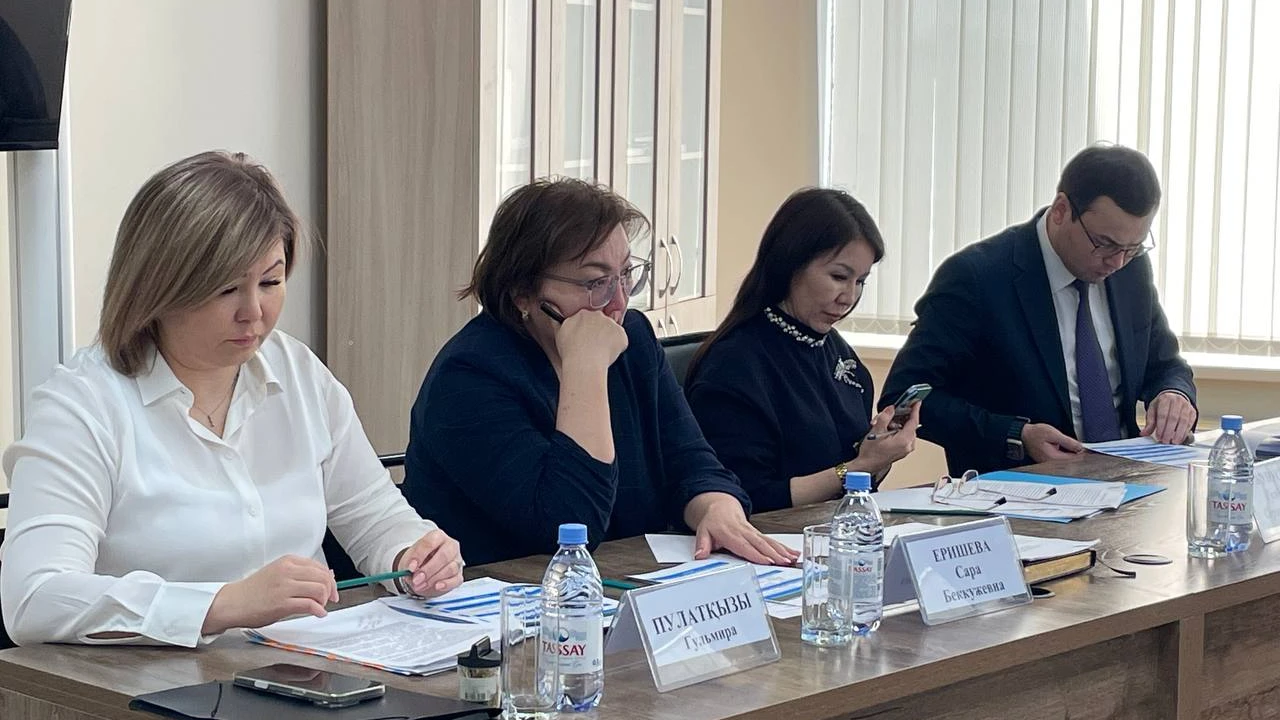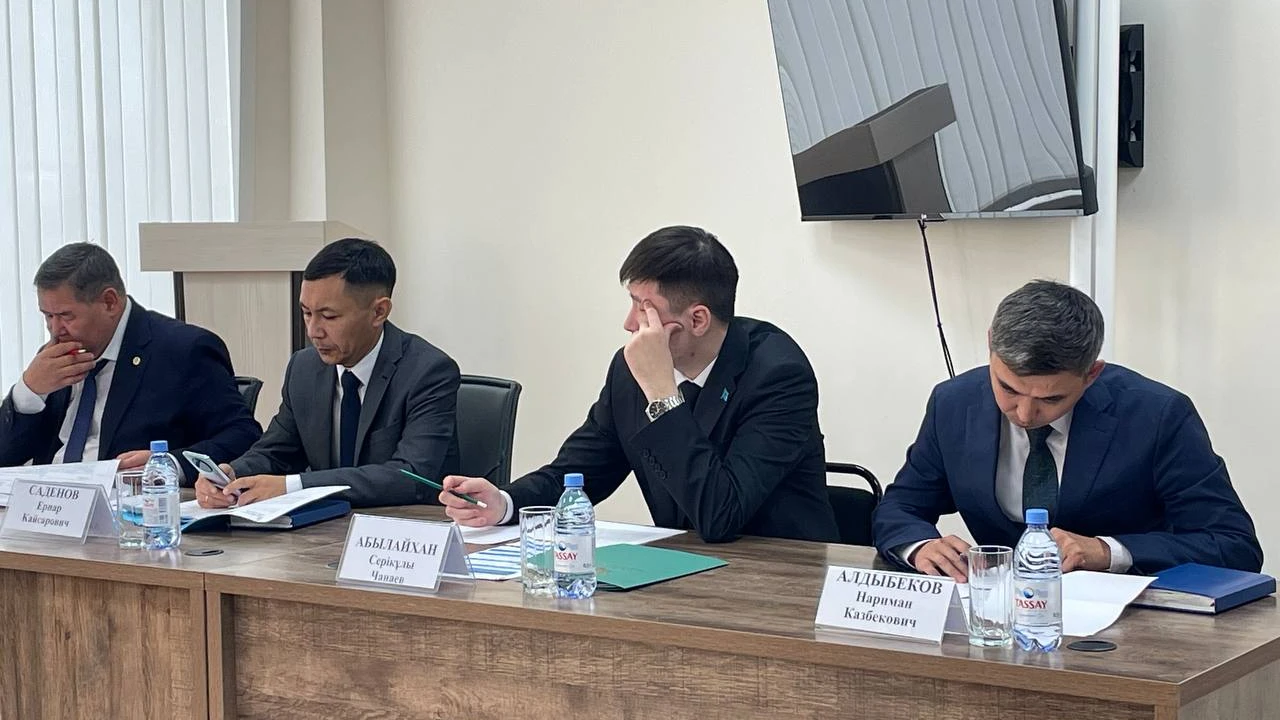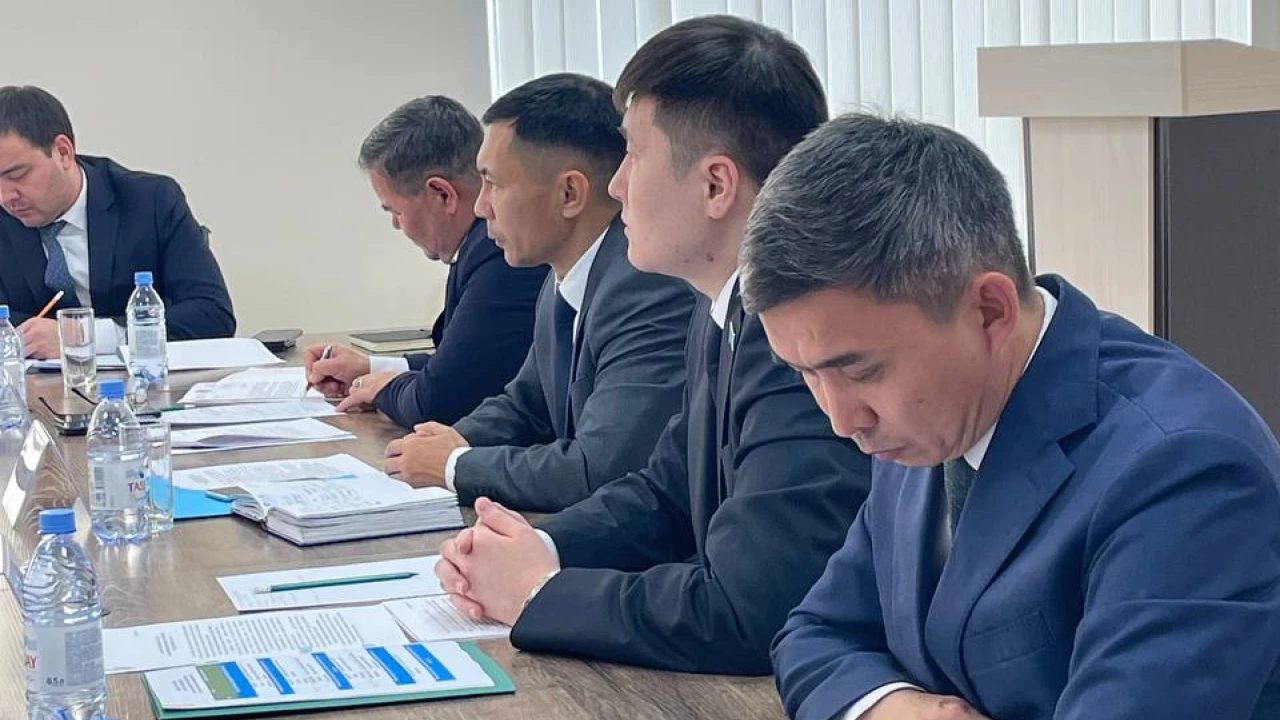



The Institute of Parliamentarism under the Presidential Administration of the Republic of Kazakhstan held a working meeting dedicated to discussing proposals for the draft law “On the Development of Border Areas.”
The meeting was opened by the Director of the Institute of Parliamentarism, Natalia Pan, who emphasized that the comprehensive development of border regions is one of the strategic tasks aimed at strengthening the country’s territorial integrity, economic security, and improving the quality of life of the population.
The event was attended by Member of the Mazhilis of the Parliament of the Republic of Kazakhstan Yerlan Sairov, as well as responsible representatives of the Ministries of National Economy, Industry and Construction, Trade and Integration, Labor and Social Protection, Education, Justice, Tourism and Sports, and Finance. Among the participants were directors of structural divisions and heads of departments directly involved in the implementation of state policy.
During the meeting, the draft law “On the Development of Border Areas,” initiated by the Amanat Party, was thoroughly discussed. Participants reviewed the key principles and objectives of the draft law and analyzed new approaches and legal mechanisms aimed at ensuring regional balance and supporting the development of border districts.
Government representatives and experts paid particular attention to enhancing the socio-economic potential of regions, improving the financing of infrastructure projects, stimulating entrepreneurship, and increasing employment. Concrete proposals were also presented regarding improvements to demographic and migration policies in border areas, strengthening educational and social infrastructure, and simplifying customs and trade procedures.
The participants further discussed the enhancement of state support and financing mechanisms, strengthening the role of local self-government institutions, and improving the coherence and systematization of legislation.
Head of the Center for Financial, Tax and Customs Legislation of the Institute of Parliamentarism, Imin Abduvalievich Sabirov, emphasized the need to consider effective mechanisms for budgetary and tax incentives to stimulate the development of border regions. He also highlighted the importance of aligning state support measures with the actual potential and social infrastructure levels of the regions.
Summarizing the meeting, Executive Director of the Institute of Parliamentarism Almas Kanatov stressed the importance of jointly incorporating practical proposals and the results of scientific expertise while refining the draft law. He noted that the Institute will continue to provide legislative monitoring and expert support on issues related to the development of border regions.
As a result of the working meeting, participants agreed to consolidate their proposals and submit them to the working group responsible for finalizing the draft law.



